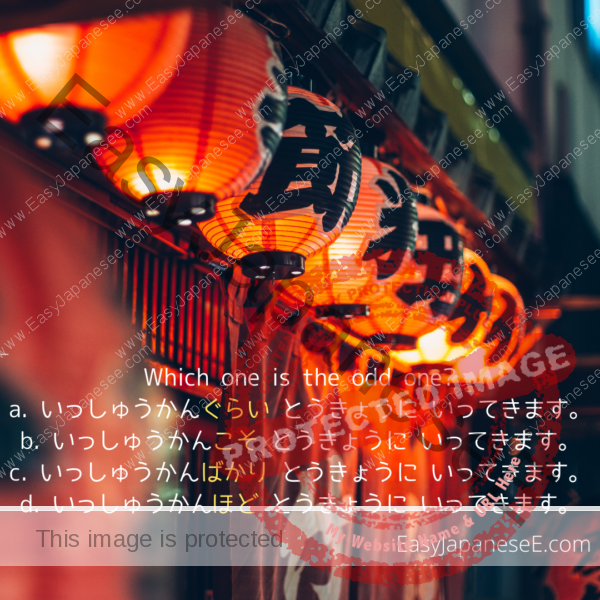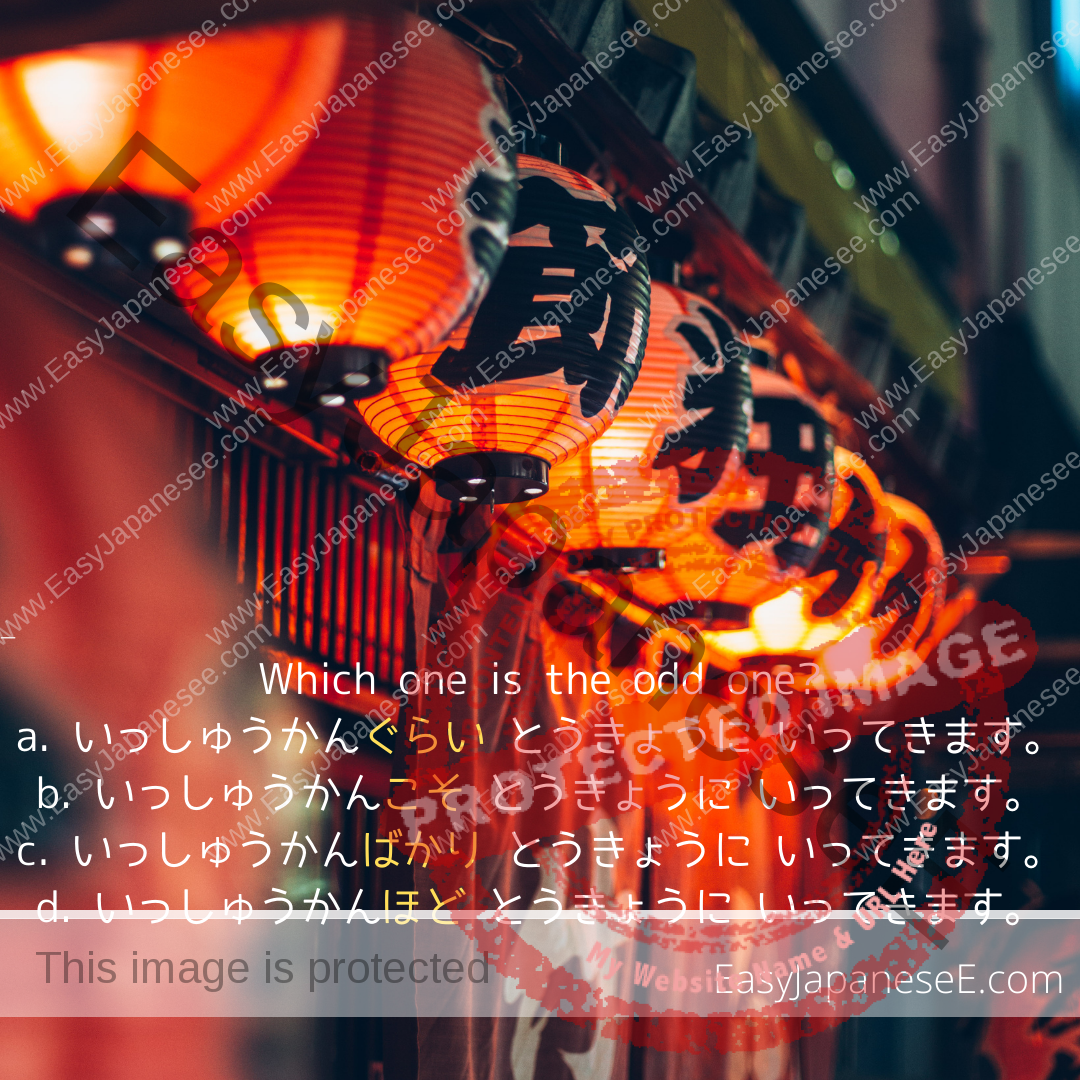
Today’s Question
Which one is the odd one?
a. 一週間ぐらい東京に行ってきます。
b.一週間こそ 東京に行ってきます。
c. 一週間ばかり東京に行ってきます。
d. 一週間ほど 東京に行ってきます。
Today’s Grammar Point: ~ばかり
~ばかり is another particle used to describe the range or extent of a condition. For ~ばかり which means “to have just done ~”, read this post.
When it’s used with a number
~ばかり is often used with a number. This ~ばかり means “approximately” and it is interchangeable with ~ぐらい/くらい or ~ほど.
Connection
- [number] + [counter] ばかり
Examples
一週間ばかり東京に行ってきます。(Today’s question sentence)
一週間ぐらい東京に行ってきます。
一週間ほど東京に行ってきます。
I’m going to Tokyo and stay there for about a week.ケアンズへは10万円ばかりで行けます。
ケアンズへは10万円ぐらいで行けます。
ケアンズへは10万円ほどで行けます。
You can go to Cairns for approximately 100 000 yen.
ばかり indicating limitation or confinement
~ばかり can indicate that something is limited or that the same thing happens so many times that it seems nothing else happens. For this meaning, we often use “only” in the translation, but while だけ literally means “only” and excludes everything else, ばかり indicates “something happens repeatedly almost always” or “there are so many of the same kind to the extent that we can’t see any other kind.”
Connection
- [noun] ばかり
- [plain form verb] ばかり
Examples
そればかりではない。
≒それだけではない。
That is not all.私ばかりがいつも悪者扱いされる。
It’s always me who gets blamed.
≒私だけがいつも悪者扱いされる。
It’s only me and nobody else who gets blamed.ジョンさんはご飯ばかり食べる。
John eats just rice (and almost nothing else.)
ジョンさんはご飯だけ食べる。
John eats nothing but rice.後は寝るばかりだ。
I’ve done everything else and I’m ready to go to bed.
後は寝るだけだ。
I’ve done everything else and only thing I (have to) do now is to go to bed.
ばかり indicating an action a person does all the time
If ~ばかり is used after the てform of a verb, that indicates the action is repeated all the time to the extend that the person does nothing else. Although you can translate the sentence using the English “only,” you cannot substitute ばかり with だけ as だけ cannot follow the てform of a verb.
Connection
- [てform verb] ばかり
Examples
エイミーさんは泣いてばかりだった.
She did nothing but cry.ジョンさんは本を読んでばかりいる。
John does nothing but read books.
Answer to Today’s Question: b
一週間こそ 東京に行ってきます。 is actually an awkward sentence. By adding この at the beginning, この一週間こそ 東京に行ってきます can be a proper sentence that means “It is in this one week when I’m definitely going to Tokyo!”

